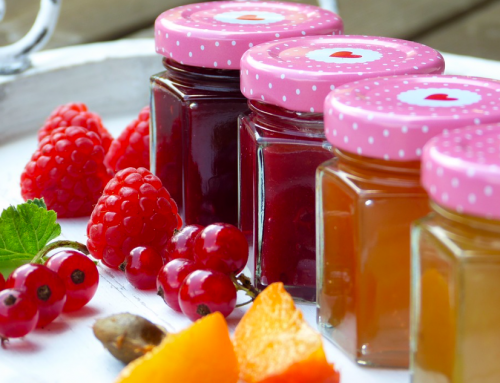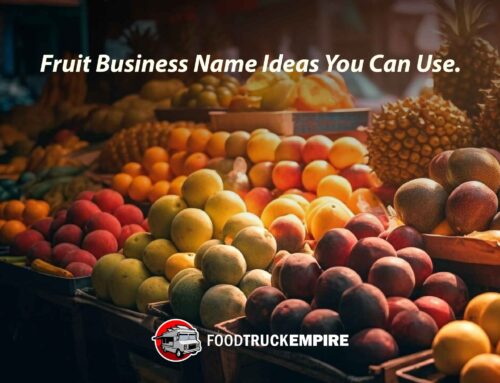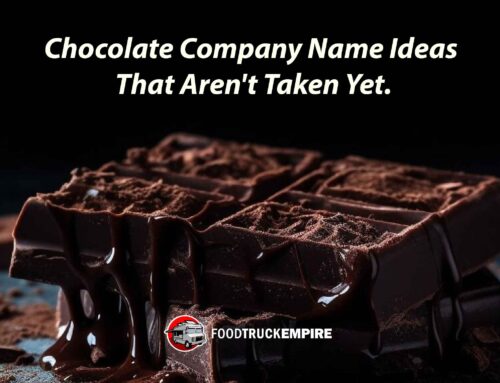This is where we publish our full list of food business ideas. These ideas come from interviews with real food and beverage startups, big and small. So far, we’ve interviewed over 100 food business owners across almost every food category imaginable.
Whenever possible, we reveal detailed revenue and sales figures when guests are willing to share their numbers with you. Whether you’re only beginning the search for a business opportunity or just want to understand the food business better, we hope this helps.
Keep tabs on this resource because we’ll be adding new case studies regularly so you never run out of startup ideas! Enjoy the brainstorm!
Packaged Food Business Ideas
These food ideas can be packaged to be sold in retail stores or online.
Cookie Business: According to reports the packaged cookie industry reached $11 billion in annual value in 2019. This isn’t surprising. Who doesn’t love a good cookie? But with opportunity comes stiff competition for shelf space in stores so you’ll need to come up with a creative spin on your recipe to stand out as revealed in the case studies below.
- Case Study #1: How I Started a $75k/Month Vegan Cookie Business with My Mom
- Case Study #2: How Startup Weekend Helped Me Launch a Healthy Cookie Business

The cookie business can be big business.
Spice and Seasoning Business: This is a attractive industry to be in for a number of reasons. First, there’s incredible demand for spices from home cooks even during the toughest of economic times. Second, you don’t need to worry as much about spoilage of the product. Shipping to retailers or distribution centers is also more affordable since salts, peppers, and seasonings are smaller and more lightweight than other food products.
Case Study: How We Started a $10 Million Dollar Spice and Seasoning Empire
Nut Butter Company: Have a passion for making artisan peanut butter? Got an almond butter idea that everyone seems to love? Consumers are moving beyond recognized brands like Jiffy and exploring alternative and small batch butters made with creative ingredients like cashews or hazelnut. The nut butter industry is expected to grow to $4 billion in total value by 2024 according to a reputable market research firm.
Case Study: How we started a handcrafted nut butter company.
Baking Mixes: Baking mixes allow consumers to enjoy fresh baked goods at home without all the work of finding each ingredient on their own. After all, most folks don’t have the time to make everything from scratch. Pre-packaged baking mixes can help at-home cooks make cupcakes, cake, pancakes, brownies, cookies, and more.
Case Study: How a Full-Time Registered Nurse Started Snacktivist Foods
Tahini Paste Company: Sometimes all you need to do is take a product popular in another part of the world and bring it to the United States. That’s what the founders of Soom Foods did in the case study featured below. After living abroad in Israel and falling in love with tahini as an ingredient, the cofounder wondered why it wasn’t widely available in the United States. With a lot of work, the lightbulb moment turned into a profitable business.
Case Study: How I started a $150/month tahini paste company.
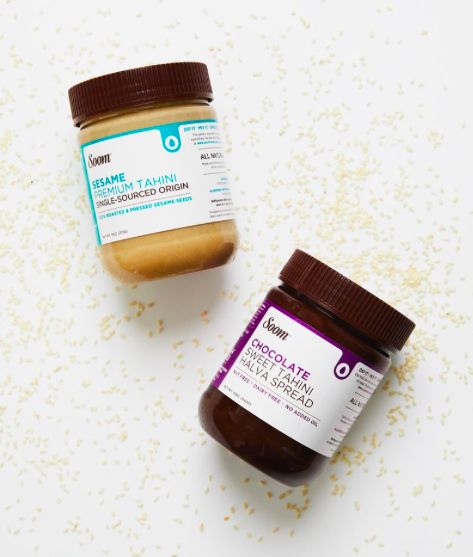
Bread Company: You might think the bread isle of your local grocery store is an impenetrable space for startups. But the founder of Orange Dot Baking Company proves white space remains for new entrants. By baking really good tasting gluten-free breads and muffins, you can attract a hungry group of customers that otherwise couldn’t enjoy this food item.
Case Study: How I started a $150K gluten-free bread company
Protein Bars: The total value of the protein bar market is expected to reach over $7 billion by 2027 according to market research firms. This is the ideal product to market to individuals who want health or performance benefits from their food. The founder of Atlas Bar shares tips about the recipe development process in our case study:
Taste is king. It seems obvious, but I think there are many who make the mistake of prioritizing other things above that (functional benefits, plant-based, etc.) When starting out, I was one of them. You could make the most nutritionally-sound, functionally-beneficial product in the world, but if it tastes like compost no one is going to eat it, much less pay you for it.
Case Study: How I sold over 1 million protein bars
Core Ingredient: You can build a business around a key ingredient. Take our example, Soulful. This company has been able to build a $3+ million dollar business around the concept of using the ancient grain millet. They’ve created breakfast cereals and drinks around this basic concept. You could do the same with a flexible ingredient you’re passionate about like soy, chickpeas, or popcorn.
Case Study: Soulful: transforming millet into a contemporary Indian consumer brand
Hummus Company: The hummus market is expected to be valued at $911 million dollars by 2024. Hummus is a flexible product that can used as a dip for snacks or meals. The product is also ideal for adding a variety of innovative flavors like garlic or chocolate.
Case Study: How to start a plant-based chocolate hummus company
Liquor infused food: You can add alcohol to all sorts of food products to make them distinct. Popular items include ice cream, candy, and even baked goods as demonstrated in the case study below. Your customers will need to be 21 years of age or older to enjoy these products in the United States.
Case Study: How I started an $1,800 month booze infused baking business
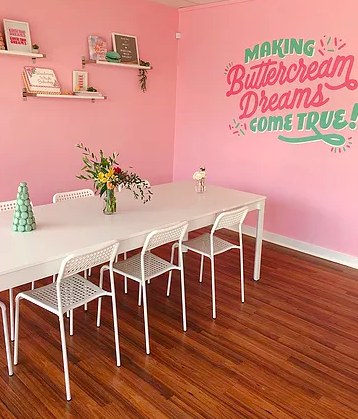
Bakery interior.
Candy bar company: Kit Kat, Snickers, and Hershey’s Chocolate are all examples of candy bars you’ve enjoyed since childhood and available for sale in the checkout lane of gas stations, grocery stores, and department stores like Target. You too can create your own unique chocolate or candy bar brand as demonstrated in our case study below.
Case Study: How I started a vegan chocolate bar company with a powerful mission
Mustard company: Regular contributor to this website, Michael Adams started a gourmet mustard company that he grew through farmer’s markets and more than 60 retail locations. Big players in the mustard market include familiar names like Heinz and McCormick Foods.
Case Study: 25-Step plan to making your food company a reality
Baby food company: The U.S. baby food market value is expected to reach over 70 billion in 2021. The organic baby food market is also growing and expected to reach $11,592 million by 2023 according to Allied Market Research. As you can see, baby food is an incredible business opportunity that can be simpler to operate than other food businesses from an ingredient sourcing standpoint. Many baby foods contain only a few simple ingredients like fruits and vegetables.
Case Study: None yet.
Burrito company: The burrito is a flexible food item. It an be consumed on the go. It can be served for breakfast, lunch or dinner with minimal ingredient tweaks. Due to the low-cost of ingredients, simplicity to make, and demand from customers, it makes a terrific food product from a business perspective too. Is there anything the burrito can’t do?
Case Study: How to start a low-overhead burrito food truck like Anita Burrito
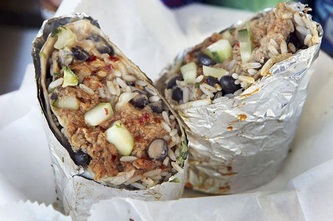
Salsa company: Pre-made salsa can be created with many unique recipes making it a product that’s easy to put a creative spin on. Most salsa companies use a tomato base, but corn and tomatillo are options too. Believe it or not, salsa is a more popular condiment than ketchup in the United States meaning this is an enormous opportunity.
Case Study: How to get salsa and other food products into Costco
Mobile Business Ideas
Food Truck: We had to include starting a food truck on the ultimate list of business ideas. Advantages to starting a food truck include much lower startup costs than restaurants and the ability to easily change locations. On the flip side, always finding new vending locations can be a challenge to operating this business.
We’ve got an abundance of case studies and interviews available to help you start this type of business.
- Case Study #1: The ultimate food truck case study
- Case Study #2: How I won season 10 of “The Great Food Truck Race” tv show
- Case Study #3: How Dave Krolak started the Cas’ Pierogi & Kielbasa food truck
- Case Study #4: How White Whale Ice Cream Truck Books Weddings
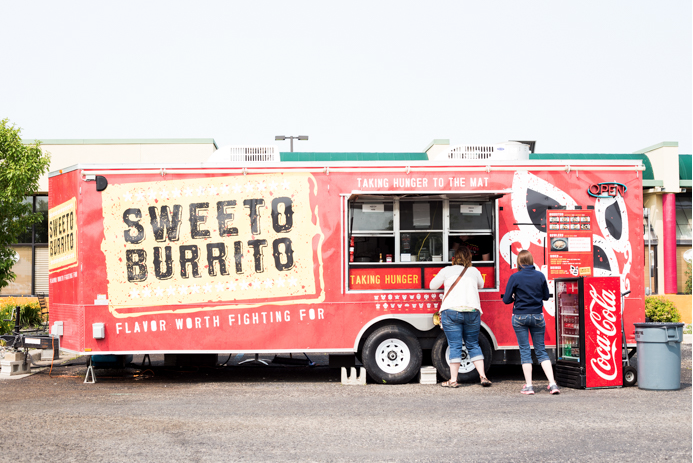
Burritos come in many forms.
Hot Dog Cart: We love the hotdog business because it’s a low-cost way to make money serving a product people around the country eat regularly. If you’re a bit scrappy and able to find used equipment, you can get started for an investment below $5,000. This means you won’t take long to recoup your investment if you work hard finding vending opportunities. We’ve published an entire course around this business opportunity because we love it so much.
- Case Study #1: Ultimate Guide to Starting a Hot Dog Business
- Case Study #2: Total Cost Breakdown for Hot Dog Business Startups (Spreadsheet)
Coffee Cart or Truck: The coffee truck can be an extremely lucrative. Not only is coffee a high-margin product, but coffee carts can generate a nice profit selling ready-made items like muffins, donuts, and granola bars too.
Case Study: How to start a sustainable coffee truck
Cake Company: You could bake specialty cakes for weddings or other events like graduation or retirement. This can be a lucrative business if you’re able to develop a name in the local wedding industry where you could charge over $1,000 for a cake with a bride and groom on top.
Case Study: How we started a one-of-a-kind cheesecake business
Catering Company: Professional catering services will always be in demand. Caterers deliver or serve large meals at events like corporate functions, weddings, or family gatherings. The nice aspect from a startup perspective is that you begin running a catering business from your home kitchen with minimal startup costs thanks to cottage food business laws.
Case Study: How I started a legit catering business out of my house
Meal Kit Company: Who has time to cook their own healthy meals? Cooking is a time consuming process that an be hard to do with a full-time job or kids. By creating a meal kit company, you help customers enjoy healthy, great-tasting meals at home while saving them time.
- Case Study #1: How I started an 11 employee healthy meal delivery company
- Case Study #2: How I grew a self-funded meal kit company to over 25,000 deliveries

A Pad Thai Meal Kit.
Food Delivery Business: Another interesting opportunity is building a local company that delivers meals from take out restaurants to homes. This can be a low-overhead business to start if you already own a car and are willing to deliver meals on your own. This business can be scaled to a really big companies as demonstrated by UberEats.
Case Study: How I scaled a food delivery company to over 20 million total deliveries across 100 cities
Teach Online Cooking Class: If you love teaching and food, why not combine the two and start an online class? Thanks to free video sharing tools available on Facebook and YouTube, you can get started with nothing more than internet access and an iPhone. Some ideas for classes include teaching how to make a specific type of ethnic food, barbecue, or baking. Learn more about this opportunity in the case study below.
Case Study: How to teach a cake decorating or baking class at home or online
Food Business Consulting: If you’ve got a skillset food businesses could benefit from, become a consultant. This options works best if you have specific industry experience or a track record running profitable restaurants. Ideas for consulting services include improve efficiency and speed of sales in a restaurant, cutting cost with recipes, recipe development, operations and marketing training.
Case Study: How we help food businesses transition to animal-free meat
Food Distributor: You don’t need to make food. You can work to help other food brands gain wider distribution. This type of service will always be valuable to startup businesses that need help getting into online or brick and mortar retailers to increase sales.
Case Study: How Pod Foods helps artisan food producers get retail distribution
Tradeshow company: You could start a conference or trade show around a certain category of food. There are many annual conferences in the food industry, notably the National Restaurant Association Show that attracts over 2,000 exhibitors and thousands of attendees each year. You could create a similar trade show around other growing segments of the food market like food technology, franchises, or plant-based meats.
- Case Study #1: How I started a vegetarian food festival
- Case Study #2: How Mark Baratelli launched the nation’s first food truck tour
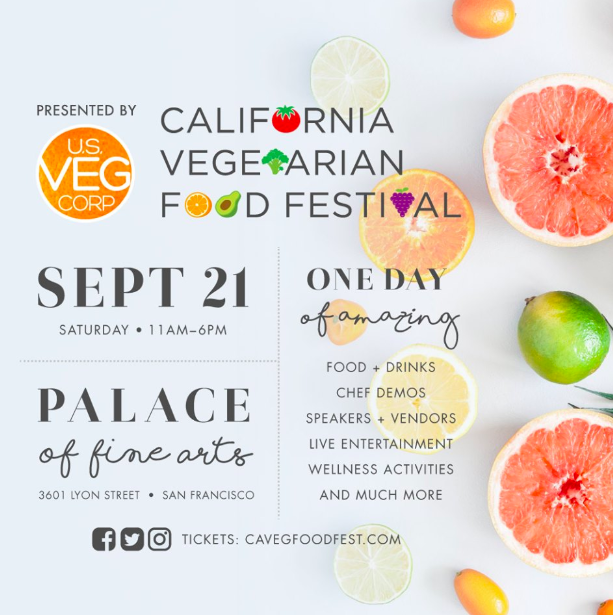
Food Tourism Guide: If you like meeting new people and introducing them to the best food and drink your town has to offer this is your opportunity. Destinations like Seattle or New York City have a tourists that want to explore locations with a local expert. With this low-capital startup, you have the opportunity to meet people, eat amazing food, and get paid for it!
Case Study: No examples yet.
Publish a Cookbook: Love developing recipes, writing, and taking brilliant photography of meals you make? Then making a cookbook could be a smart choice. While published book sales have declined for years, cookbooks have enjoyed a resurgence in recent years. If you have a unique perspective on cooking and the fortitude to work for months writing and editing a book this is a viable option.
- Case Study #1: Writing a cookbook while running a restaurant with Eric Silverstein of The Peached Tortilla
- Case Study #2: Interview with Food Truck Road Trip Author Philip Shen
Food Booth and Concessions: When it comes to profitability, the concession stand or food booth operators know what they’re doing. Food items like corn dogs, popcorn, cotton candy, soda, hot dogs, and churros all have well over 50% profit margin, which can’t be said for most food businesses. The next time you’re at a fair or sporting event, pay attention to the food being sold there. This is where you’ll find the highest profit food items on the planet!
Case Study: Food booth vendor with 20+ years experience shares concession sales secrets
Vending machine business: The vending machine industry is an interesting part of the food business to be in. When we think of vending, the first thing that comes to mind is soda and snack machines. But there’s also a new breed of machines designed to serve healthy alternatives like apples or bananas. If you like working alone, restocking machines, and fixing broken equipment this is a proven business to be in.
- Case Study #1: How to grow and scale a vending machine business
- Case Study #2: How to write a vending machine business plan
- Case Study #3: How to start a candy machine business
Competition BBQ team: Love the thrill of cooking competitions? Starting a competition BBQ team could be a viable option. You can generate revenue by winning contests, but also by selling your own blend of spices or attracting brand sponsors. Your ultimate goal is to build a brand around your team to market and sell other BBQ related products.
Case Study: How to attract sponsors for your BBQ team like Wolf’s Revenge BBQ
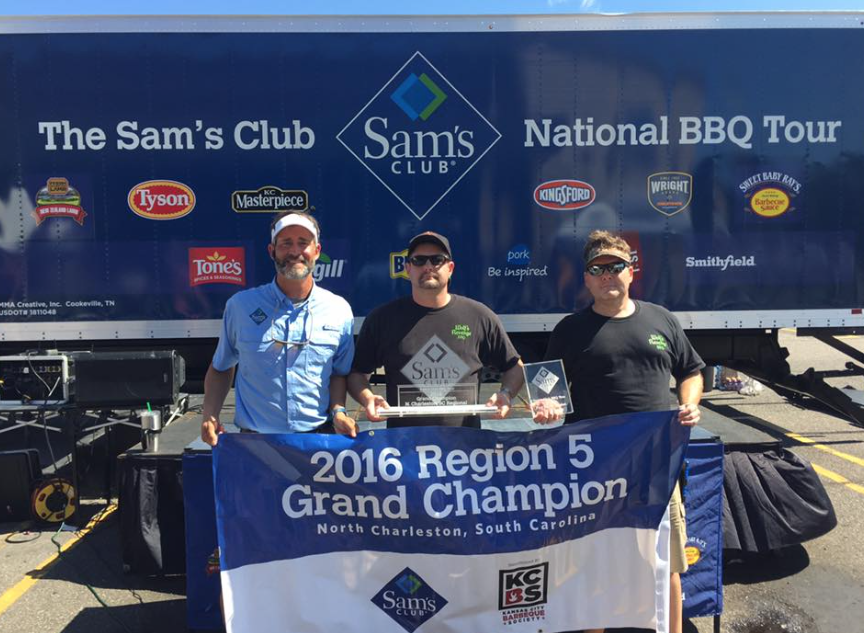
Chiles Cridlin and Wolf’s Revenge BBQ being honored as 2016 Region 5 Grand Champion.
Kettle corn business: This is an idea we love. Kettle corn has a low-ingredient cost, low startup cost for equipment, and the operations are simple once you get going. If you’re someone that wants to start a simple business where you can generate a few hundred dollars worth of profit each day on the weekend this is a fantastic option.
Case Study: How to start a profitable part-time kettle corn business
Shaved Ice: Ice and syrup. That’s your product in a nutshell with the business that’s created successful franchise businesses and independent operators alike. This industry is able to maintain high-profitability thanks to ingredient costs that run at 20% or less. Many successful businesses in this space generate sales through fundraising efforts with schools, sport teams, and non-profits.
- Case Study #1: Introduction to the shaved ice business with Snowie
- Case Study #2: How to start a $1 million dollar shaved ice business like Snowy Joey
Beverage Business Ideas
Kombucha Company: Kombucha is a fermented tea that’s been enjoyed for thousands of years, but is starting to regain in the 1990s. You can packages kombucha in bottles or cans. Kombucha is sold in retail in grocery stores or online.
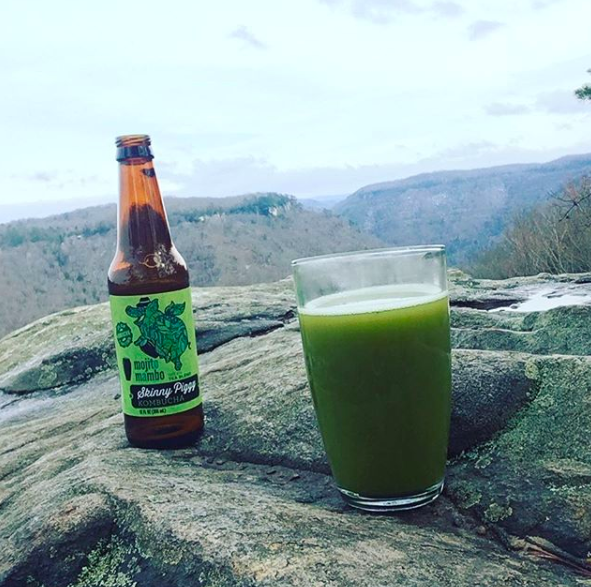
Mojito Mambo Kombucha with a view.
Aloe Vera Beverages: Combining drinks with surprising ingredients is a proven way to differentiate yourself in the industry. Aloe vera beverages mixed with fruit flavors is a creative way to accomplish this. While these beverages are only beginning to gain traction in the United States, across Asia the drinks are already popular.
Switchel Company: Sometimes looking back in history at the specific food or drink that was popular can serve as inspiration. Our next entrepreneur took a ginger and apple cider vinegar beverage called Switchel and gave it an update. This elixir was frequently enjoyed in the 17th century, but almost no one has heard of the beverage today. What forgotten beverage could you bring back to life?
Case Study: How I sold over 130,000 bottles of switchel
Hangover Recovery Drink: A lot of people like to party, but we’ve never met anyone who enjoys the after effects the next morning. Hangover recovery drinks are a popular product in many Asian countries and gaining steam in the United States as well.
Case Study: How I launched a $10 million ARR hangover recovery drink
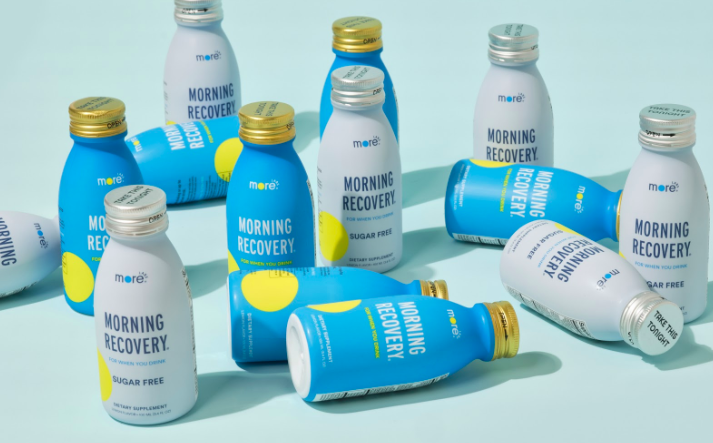
Morning recovery.
Shake company: Shakes can be enjoyed as a healthy breakfast or a meal replacement. The appeal of the shake is that ingredients like fruit, nuts, milk and vitamins can all be enjoyed in a single beverage. This is the perfect food to delivery to target the health conscious consumer. The shake industry was valued at over $8 billion in 2018 with annual growth projected through 2025.
Case Study: Why I launched a complete meal company after facing hunger twice.
Water company: The bottled water industry is a massive opportunity expected to reach $334 billion in value by 2023. Although environmentalists have raised awareness about plastic waste from this industry, sales continue to grow globally. This market is extremely competitive with many entrenched players, but if you can find a unique idea with market fit you can build a really big business.
Case Study: How I started an innovative water company
Smoothie / juice bar: Smoothies are an appealing beverage for health and flavor focused consumers alike. Smoothies are ideal as breakfast, snack, or nutritional replacement for almost any meal. If you have a passion for making organic juices this could be the right opportunity.
Case Study: Pros & Cons: Should you start a juice / smoothie bar?
Craft brewery: It seems like every major city across the United States now has a craft brewery scene. This wasn’t the case ten years ago. If you’ve got a passion for developing new styles of IPA or other ales this a viable business even if you won’t be a first mover in this segment. Our podcast case study reveals how one founder started his business on the cheap.
Case Study: How I started a craft brewery for $50,000 and how you can do the same.
Restaurant and Retail Food Business Ideas
Restaurant: Starting a restaurant is a broad idea. You could start a quick-serve restaurant, taco shop, or fine dining establishment and they would all fit under this category. We’ve published a lot of in-depth guides and interviews on this topic and included some of our best pieces below.
- Case Study #1: 8 specific ways I saved money opening my restaurant
- Case Study #2: How I converted a house into a full-service restaurant
- Case Study #3: How I opened a restaurant with no money and a 540 credit score
- Case Study #4: How we started a $50k/month Singapore fusion restaurant

Stress as a restaurant owner.
Fast Food Business: Gourmet hamburgers. French fries. There’s nothing more American than the fast food restaurant. These can be profitable food businesses to run and offer customers tremendous value. It’s not uncommon for fast food chains to generate more than half their total revenue through the drive-thru lane. This is a concept that can work well anywhere in the United States and a proven food business option.
Case Study: None yet.
Franchise Restaurant: You don’t need to come up with your own menu and operations plan to start a successful restaurant. Instead you can join a proven concept as a franchisee and increase the success rate of the restaurant compared to a new concept. Franchises can help you get started faster with a built-in marketing plan, suppliers, and menu. All you need to do is run the business well. Some of the highest revenue restaurants in the world like McDonald’s offer franchise opportunities.
- Case Study #1: Le Macaron French Pastries Franchise Review
- Case Study #2: Straw Hat Pizza Franchise Review
- Case Study #3: Growler USA Franchise Review
Pastry Shop or Bakery: Love making cakes, cookies, and other baked goods? Opening a small pastry shop or bakery could be the right choice for you. One key tip we’ve gotten from successful bakery owners is that you should find a specialty that you really love making to specialize in. You can’t be great at baking everything under the sun. Find a niche you love, stick to it, and perfect it. The customers will come!
- Case Study: How a culinary grad built a $26k/month pastry shop
- Case Study: 6-step marketing growth plan for a home-based bakery
FAQ:

Labels are an essential part of your packaging and design.
Here are answers to common questions we get about starting a food business.
How do I start a food business?
Here are the five basic steps to starting a food business:
- Define your menu or what food items you want to sell.
- Determine food costs and how much you will need to charge customers to be profitable.
- Write business plan that includes marketing plan, where you’ll source ingredients, equipment startup cost, and inventory startup costs for the business.
- Figure out what licenses and insurance you’ll need to legally operate the business. Starting a cottage food business will be the lowest cost and simplest option for food startups who can produce the product in a home kitchen.
- Get out there and collect feedback about your food. Start small vending at a farmer’s market or craft fair. You need to find out if people are willing to pay for your product as soon as possible. Try selling small batches of your product to test for a market fit before investing tens of thousands of dollars into equipment or a retail space. Find out if people will like your food before investing your life savings!
What food business is the most profitable?
One of the most profitable food items to sell is shaved ice. Why? Ice and flavored syrups are extremely cheap to buy. This means you can often net 80% or in profit from each sale. That’s pretty amazing in the food industry.
If you’re looking for highest profit items to sell, look to the concession industry for inspiration. Food sold at fairs or sporting events is usually the most profitable. Popular concession items include shaved iced, fried bread, cotton candy, turkey legs, hot dogs, corn dogs, popcorn, ribbon fries, deep fried pickles, and fresh lemonade can all be sold 3x – 6x what the cost to make the product.
Related Reading: 25-Step Plan to Making Your Food Company a Reality
Figuring out how much each item on your menu costs is essential for any successful food business. You can download our food cost template for free here to determine how much each food item will cost to make.
What’s the cheapest food business to start?
The lowest cost food businesses are ones with low-cost equipment and initial food cost. Some of our best ideas in this category include starting a kettle corn business or a hot dog stand.
Both of the suggestions above can be started for well under $10,000 even after buying the equipment, initial inventory of product, and getting a business license. While these little businesses probably won’t make you a millionaire, founders can quickly recoup their initial investment within a few months or even weeks of work.
What’s the best food business to start?
The best type of food business to start is one you love to operate, has consumer demand and margin so you can turn a profit. That’s all there is to it!
After you find a food idea that meets the criteria listed above, find ways to make the food item unique to your area too. You can make a product unique through creative toppings, quality of ingredients, or a special cooking method.
There are probably a couple spots in town that serve burritos. Burritos have been done. But there may not be anyone serving organic rotisserie roasted chicken with handmade burritos in your town. Putting a creative spin on a well known food is a proven approach to starting a successful food business.
If you want even more ideas, don’t forget to join our free food business community. Join the group and you’ll get exclusive interviews with food entrepreneurs and our food business model canvas template to help you build a winning business strategy fast.

